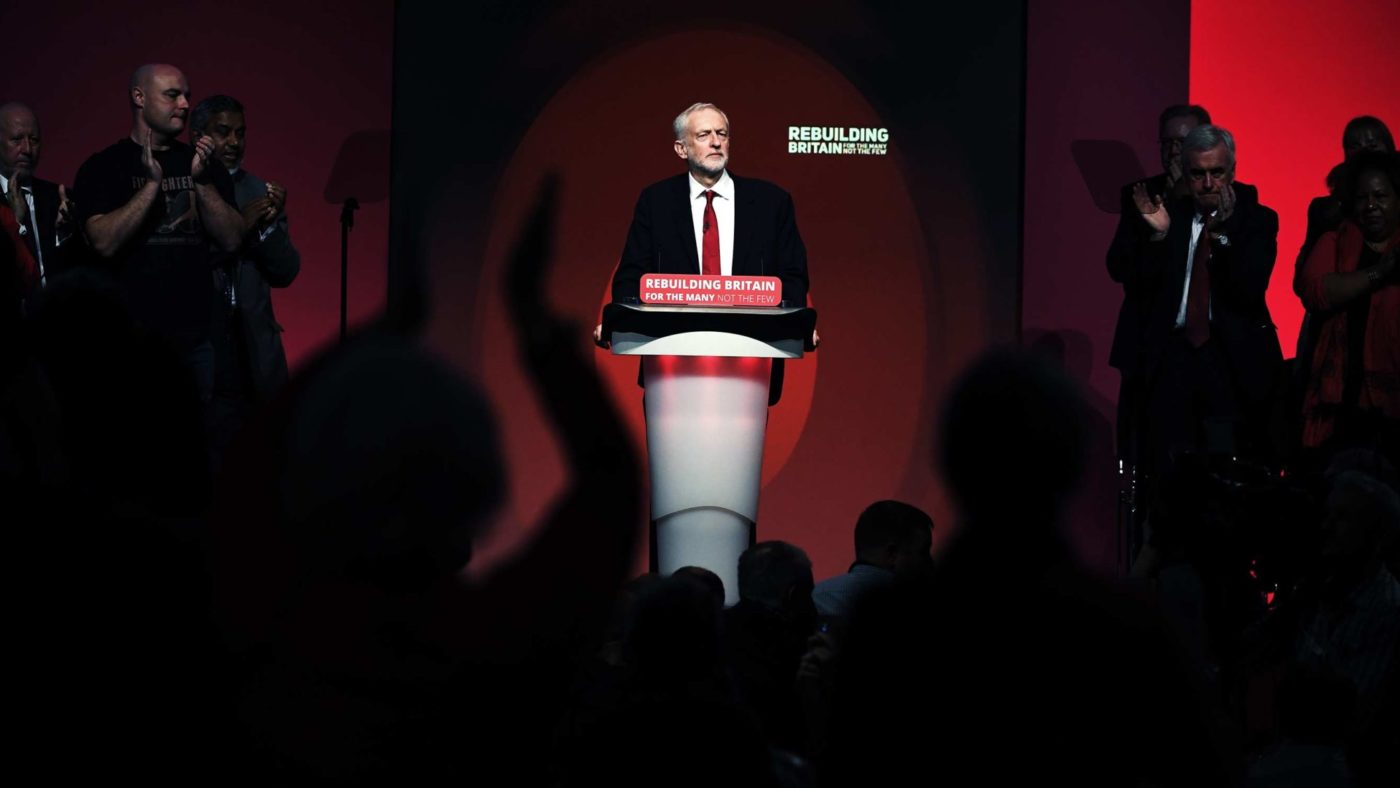“We are winning the public debate. We have defined the new common sense,” declared Jeremy Corbyn, with alarming confidence, in his speech at Labour Party Conference in Liverpool this week.
The British electorate may not be reaching for copies of Das Kapital, but I fear Corbyn is right to say he is winning.
At the end of a week in which a slew of Labour policy announcements marked a leftwards shift from last year’s trillion-pound manifesto, the party’s gamble has come into sharp focus.
Corbyn and McDonnell are betting on the existence of a healthy appetite among voters for a radical change of course from the status quo.
Whether you look at the economic numbers or the polling, you cannot help but feel the odds are in their favour.
As the Resolution Foundation’s Matt Whittaker pointed out in a gloomy blog post yesterday, the last ten years have seen the slowest rate of growth since 1952, with an average annual increase in per capita GDP of 0.4 per cent. Disposable household income in the second quarter of 2018 was just 2.5 per cent higher than the same quarter in 2008. That kind of income stagnation is without precedent in living memory. These are not the conditions in which incumbent parties tend to fare well.
Of course, the policies proposed by John McDonnell and Jeremy Corbyn will only make these problems worse. Consider, for example, the Shadow Chancellor’s flawed plans to take 10 per cent of public companies’ shares and use them to give workers a pay rise. Yet in strained economic times, politics becomes zero-sum. And in that respect, Labour really do represent the new mainstream. Their slogan – “For the many, not the few” – would have struck a bum note before the crash. Today, it resonates.
Poll after poll demonstrates the leftwards shift that Corbyn described (albeit in exaggerated terms) in Liverpool this week. A majority of Conservative voters want to raise taxes. John McDonnell’s share ownership plan may be disastrous, but it is popular: according to YouGov, 54 per cent of all Brits like the sound of it; more Conservative voters support it than oppose it. Renationalisation of the utilities is also popular.
Alan Lockey argued on CapX this week that one of Corbyn’s achievements is to make common or garden social democrat policies like free childcare sound like “the radical change the country so nakedly craves”.
But Labour’s real sleight of hand is the way in which Corbyn and McDonnell make the genuinely radical seem inoffensive. This is the case with those plans for extensive and rapid renationalisation. “In some cases, investors might not be compensated,” reported Reuters last weekend – to staggeringly little fuss.
So, as they decamp to Birmingham for their annual conference, the Conservatives must learn from the Opposition the power of a coherent vision. Those voters paying attention will not be left in any doubt as to what Labour stands for. Can the same really be said of the Tories?
This week, Conservative MP George Freeman warns in the House magazine that “amongst a new generation of voters under 45, both capitalism and our model of liberal democracy are suffering a deep crisis of unpopularity… Unless the Conservative party reconnects with them, we risk becoming a rump party of nostalgic nationalists.”
That doesn’t mean trying to out-Corbyn Corbyn. It means, as Universities Minister Sam Gyimah MP put it in a recent speech at the Centre for Policy Studies, “reinvigorating capitalism” rather than apologising for it. It also means having the discipline to stop the sound of Brexit squabbling drowning everything else out.
Unlike Corbyn and McDonnell, British voters are not an ideological bunch. In their eyes, “the new common sense” will be an agenda that addresses the problems they recognise in their own lives. The Tories must make sure they leave Birmingham with a clearer idea of what Conservative common sense looks like today.
Say hello to CapX at Conservative Party Conference.


